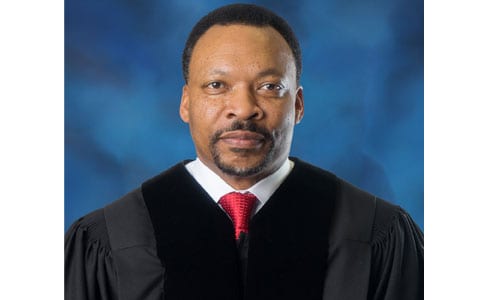
By Rockdale Probate Judge Clarence Cuthpert, Jr.
It is very important that you keep your original Last Will and Testament (“Will”) in a safe place to protect it from loss, damage, destruction, or theft. Georgia law presumes that, if the original Will cannot be located following death, it was destroyed by you with the intent to revoke it. While it may be possible to overcome this presumption, the process of proving it was not your intent to revoke the Will can be difficult, time consuming and costly.
A fireproof cabinet or safe in your home is one example of a safe place to secure your Will. However, keeping a Will at home, even if in a cabinet or safe, may expose it to loss, theft, or damage. If there are others who have access to the cabinet or safe, this would obviously make the Will more susceptible to theft or damage.
Some attorneys offer to store their clients’ Wills in a secured place within their law offices. Leaving your Will with an attorney for safekeeping is a viable option, but you should make sure that someone other than you have the name and address of the attorney who has the Will, and, if you relocate to another state, change attorneys, or publish a new Will or Codicil, inform your attorney of the aforementioned changes to ensure that the appropriate action is taken.
Also, a Will may be deposited for safekeeping with the Probate Court of the county in which you are domiciled at the time the Will is stored. The fee for storing a Will for safekeeping in Rockdale County is currently $15.00. Depositing a Will with the Probate Court should provide adequate protection. However, even when your Will is stored with the Probate Court, you should ensure that someone else has the name and address of the Probate Court where the Will is stored, and, that you file any subsequent Will or Codicil with the Court.
Wills are often placed in the safe deposit box of the testator (you), executor nominated in the Will, or a relative of the testator. A safe deposit box is usually a good and safe place for the storage of a Will, provided, again, that someone else knows where the Will is stored. Upon your death, if there is not another person who has access to the safe deposit box, there is a procedure by which the judge of the Probate Court in the county where you were domiciled may issue an order for the opening and inventorying of your safe deposit box. Upon presentation of satisfactory proof of death, the judge may issue an order directing the financial institution where the safe deposit box is located to open it and permit an examination of the same by the person named in the order. The inspection must be made in the presence of an officer of the financial institution, an inventory of the contents of the box is made, and the inventory document is signed by the person named in the order and the officer of the financial institution. The financial institution must keep a copy of the inventory document and file the original or a true copy with the Probate Court. Nothing is to be removed from the safe deposit box, except that the financial institution, if ordered to, shall deliver any writing purported to be the testator’s Will to the Court by certified mail or personal service. A deed to a burial plot or burial instructions may be delivered to the person named in the court order, and a document purporting to be a life insurance policy on your life shall be delivered to the named beneficiary. All other documents or contents in the testator’s safe deposit box must remain there until an executor or administrator of the estate has been appointed by the Probate Court.
The information included herein is only intended to provide some viable options for storing your Last Will and Testament for safekeeping. This information is not all inclusive and should not be used as or considered to be legal advice.


![Validate my RSS feed [Valid RSS]](https://web.archive.org/web/20240108205913im_/https://ocgnews.com/wp-content/uploads/2022/07/valid-rss-rogers.png)

